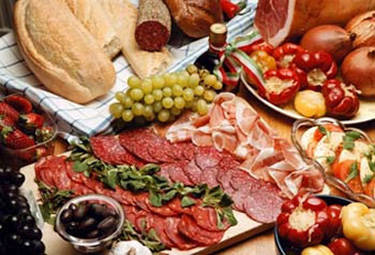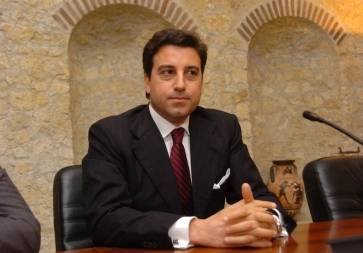Calabria is No Longer “Most Southern Part of the South.”
Fabrizio Capua, commissioner with oversight of special E.U. programs, Euro-Mediterranean policies, internationalization, cooperation among various constituents, and policies promoting peace.
Fabrizio Capua is a successful entrepreneur in Calabria who most recently has become active in politics. After studying in the United States, in 1993 he began work at Coca-Cola Italy followed by other major companies.
He begins by telling us about himself. “I put my business experience to use in strategic choices
to benefit the region of Calabria in terms of international and European cooperation. My mission is to contribute as a ‘technician,’ with an eye strictly on external policies, adding value to the work of the region.”
His answers to our questions are not without controversial ideas.
What does it mean to internationalize a region like Calabria?
This challenge is a central problem for every region, especially since the effects of the global economic crisis. These are difficult times but it is also full of new opportunities and Calabria’s role is important. To do this, we must tear down the old axiom that “Calabria is the most southern part of the south.”
How is Calabria participating in this year’s Fancy Food Show?
There are several companies. It is often said that for companies in Calabria, the foreign market, especially the American one, is prohibitive. This is certainly due to a rigid mentality but also because of the reality of high costs. Only recently have some companies begun to appreciate the kind of policies that create and organize events to promote their products by investing on their own.
What are the agro-food companies in Calabria like?
Most are small to medium sized businesses. And the reasons for the difficulties in entering a market that goes beyond the local one are due to cultural and organizational differences. Many entrepreneurs have never entered the field of cultural exports, which is a problem, and overall these challenges cannot be overcome quickly.
Also from an organizational point of view the problem is internal: close-mindedness in the past does not allow these small businesses to emerge as export managers. Very often the founder of the company will personally appear at and participate in events like the Fancy Food Show.
In light of this, it is easy to understand what is meant by a “lack of an export-oriented culture.” It’s necessary to think about internationalization and a larger cultural perspective in addition to the potential profit a manufacturer can derive from a product.
But then there are also financial issues.
Yes, and that cannot be underestimated. I strongly believe in creating competition among exporters which will unite a number of companies offering the same type of product. Together, they can create some sort of system, a synergy that makes it possible to support the cost of global investment.
I must say that something is changing. The 29 small businesses that participated in this year’s Fancy Food Show for the first time came to the convention at their own expense, and this is probably the most tangible sign that a change in mentality is taking place.
So these shows are important?
Personally I do not place a tremendous amount of stock in these kinds of trips since I perceive the show as something that has a following, something that runs out of steam on its own. Conversely, a business trip should be conceived as highly organized undertaking that involves an annual review of the activities of individual companies. I see it more as a concrete event which has a specific path and intention.
This year’s your Fancy Food Show partecipation has also garnered the support of Italy’s Union Camere [Chamber of Commerce].
I believe in the positive contribution of Italian chambers of commerce abroad; they are private, not political entities. They take a very pragmatic approach in that they organize everything that precedes the execution of the events. The task of the regional entity is to make sure that this preparatory work has been done thoroughly.
Where is the region of Calabria headed next?
In September, the region of Calabria will take part in an event in Australia. Companies who will participate have always belonged to the agro-food sector. The twelve million euro that the region of Calabria region can spend to increase its share of exports is also encouraging.
You are a rather young commissioner. How important is it to involve the younger generations?
Institutions are not tools that can help development. I have said it and I will keep repeating it. It’s important to focus on young people since they are the only ones who are capable of going beyond existing limitations and accepting new challenges.





































i-Italy
Facebook
Google+
This work may not be reproduced, in whole or in part, without prior written permission.
Questo lavoro non può essere riprodotto, in tutto o in parte, senza permesso scritto.